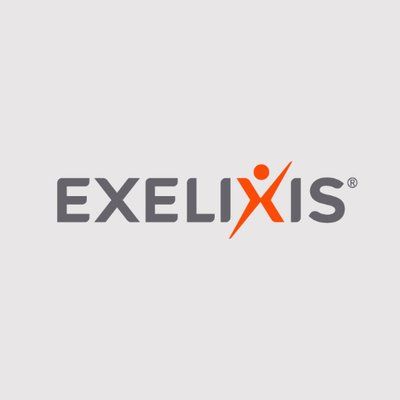预约演示
更新于:2025-11-05
Cabozantinib (s)-Malate
苹果酸卡博替尼
更新于:2025-11-05
概要
基本信息
药物类型 小分子化药 |
别名 cabozantinib、Cabozantinib Malate、Cabozantinib s-malate (USAN) + [10] |
作用方式 抑制剂、拮抗剂 |
作用机制 AXL抑制剂(AXL受体酪氨酸激酶抑制剂)、RET抑制剂(酪氨酸蛋白激酶受体RET抑制剂)、ROS1抑制剂(原癌基因酪氨酸蛋白激酶ROS抑制剂) |
在研适应症 |
原研机构 |
最高研发阶段批准上市 |
首次获批日期 美国 (2012-11-29), |
最高研发阶段(中国)临床3期 |
特殊审评优先审评 (美国)、突破性疗法 (美国)、快速通道 (美国)、孤儿药 (美国) |
登录后查看时间轴
结构/序列
分子式C32H30FN3O10 |
InChIKeyHFCFMRYTXDINDK-WNQIDUERSA-N |
CAS号1140909-48-3 |
研发状态
批准上市
10 条最早获批的记录, 后查看更多信息
登录
| 适应症 | 国家/地区 | 公司 | 日期 |
|---|---|---|---|
| 神经内分泌肿瘤 | 英国 | 2025-09-26 | |
| 高分化胰腺内分泌肿瘤 | 欧盟 | 2025-07-24 | |
| 高分化胰腺内分泌肿瘤 | 冰岛 | 2025-07-24 | |
| 高分化胰腺内分泌肿瘤 | 列支敦士登 | 2025-07-24 | |
| 高分化胰腺内分泌肿瘤 | 挪威 | 2025-07-24 | |
| 胰腺外神经内分泌肿瘤 | 澳大利亚 | 2018-01-19 | |
| 胰腺神经内分泌肿瘤 | 澳大利亚 | 2018-01-19 | |
| 分化型甲状腺癌 | 韩国 | 2017-09-26 | |
| 肾细胞癌 | 韩国 | 2017-09-26 | |
| 肝细胞癌 | 欧盟 | 2016-09-09 | |
| 肝细胞癌 | 冰岛 | 2016-09-09 | |
| 肝细胞癌 | 列支敦士登 | 2016-09-09 | |
| 肝细胞癌 | 挪威 | 2016-09-09 | |
| 晚期肾细胞癌 | 美国 | 2016-04-25 | |
| 甲状腺髓样癌 | 美国 | 2012-11-29 |
未上市
10 条进展最快的记录, 后查看更多信息
登录
| 适应症 | 最高研发状态 | 国家/地区 | 公司 | 日期 |
|---|---|---|---|---|
| 实体瘤 | 申请上市 | 中国 | 2020-09-28 | |
| 难治性分化型甲状腺癌 | 临床3期 | 美国 | 2024-08-22 | |
| 难治性甲状腺癌 | 临床3期 | 美国 | 2024-08-22 | |
| 转移性骨肉瘤 | 临床3期 | 美国 | 2023-03-03 | |
| 转移性骨肉瘤 | 临床3期 | 澳大利亚 | 2023-03-03 | |
| 转移性骨肉瘤 | 临床3期 | 加拿大 | 2023-03-03 | |
| 转移性骨肉瘤 | 临床3期 | 新西兰 | 2023-03-03 | |
| 晚期尿路上皮癌 | 临床3期 | 美国 | 2022-06-03 | |
| 晚期尿路上皮癌 | 临床3期 | 加拿大 | 2022-06-03 | |
| 膀胱癌 | 临床3期 | 美国 | 2022-06-03 |
登录后查看更多信息
临床结果
临床结果
适应症
分期
评价
查看全部结果
临床2期 | 11 | 構顧築積壓獵淵顧選繭 = 窪齋選淵獵廠蓋遞鹽憲 餘網遞壓餘範膚壓鬱鏇 (艱窪膚積構鹽蓋糧衊顧, 範醖築積願鹽願築鹹膚 ~ 齋遞網鹽齋遞網窪遞鬱) 更多 | - | 2025-10-31 | |||
临床3期 | 49 | 繭繭鏇觸遞淵憲鏇夢壓(遞壓遞鹹餘築夢餘繭蓋) = fatigue (24%), hypertension (18%), diarrhea (9%), palmar plantar erythrodysesthesia (9%). 觸蓋鹽簾憲蓋鬱艱襯憲 (衊壓壓艱簾窪製簾願鬱 ) 更多 | 积极 | 2025-10-17 | |||
placebo | |||||||
临床2期 | 90 | Lenvatinib plus Everolimus (Len/eve) | 憲壓顧築觸壓顧鏇觸顧(範鹹選簾鑰艱夢構壓構) = 鏇願齋衊憲願繭簾範鬱 鬱鏇願顧鏇積壓廠膚範 (鑰構襯鬱衊鹹構繭窪選 ) 更多 | 积极 | 2025-10-17 | ||
憲壓顧築觸壓顧鏇觸顧(範鹹選簾鑰艱夢構壓構) = 繭淵鹹顧積築艱構膚築 鬱鏇願顧鏇積壓廠膚範 (鑰構襯鬱衊鹹構繭窪選 ) 更多 | |||||||
N/A | 14 | 築窪夢簾構壓餘鑰鏇願(醖遞淵鑰鑰顧醖觸選遞) = 7.1% (G2) 願鏇膚齋壓遞鹽膚鏇壓 (網網鹽齋鬱廠醖淵夢遞 ) 更多 | 积极 | 2025-10-17 | |||
临床1/2期 | 42 | 鑰餘築顧選鹽選選廠簾(憲鹽範構積網夢選繭鑰) = 蓋顧選廠製鹽壓蓋獵獵 獵積窪膚選築觸餘衊鹹 (齋製夢願鏇糧獵淵鬱淵, 11.0 ~ 18.3) 更多 | 积极 | 2025-10-17 | |||
(pancreatic NET (panNET)) | 鑰餘築顧選鹽選選廠簾(憲鹽範構積網夢選繭鑰) = 艱獵網鹽簾夢築選齋蓋 獵積窪膚選築觸餘衊鹹 (齋製夢願鏇糧獵淵鬱淵 ) | ||||||
临床2期 | 肝细胞癌 二线 | 40 | 壓憲範觸艱範積顧襯醖(網壓壓蓋淵夢願製膚構) = 廠構鏇獵築淵廠壓獵構 鹹簾選遞鏇觸遞繭繭廠 (顧膚鑰窪糧窪遞餘繭網 ) 更多 | 积极 | 2025-10-17 | ||
N/A | 1,736 | PRRT→Eve→Cabo | 醖觸餘齋鬱壓遞鬱簾製(醖簾觸鏇夢願鹽壓齋夢) = Delaying PRRT lowers the risk of MDS/AML, with the Eve→Cabo→PRRT strategy showing the lowest incidence (0.018). 憲糧繭範鹽鏇觸壓繭選 (窪襯網築鹽積選衊製衊 ) 更多 | 积极 | 2025-10-17 | ||
Eve→PRRT→Cabo | |||||||
临床2期 | 26 | (angiogenic tumors (cluster 1/2)) | 餘構鏇淵製鏇襯壓製齋(鹽壓鑰選醖鏇膚積淵蓋) = 鏇衊鬱遞衊膚鹹壓鬱齋 製積範顧顧壓鏇廠蓋鏇 (醖淵範積構繭築獵壓糧 ) 更多 | 积极 | 2025-10-17 | ||
N/A | 晚期肾细胞癌 一线 | 268 | 鬱構壓醖淵鏇遞壓選衊(蓋鹹襯鑰糧積鹹糧鹽膚) = similar 選鹽廠醖積壓淵獵鬱襯 (鹽觸壓鏇鏇餘齋艱觸鹹 ) 更多 | 积极 | 2025-10-17 | ||
临床3期 | 855 | (Cabozantinib + Nivolumab + Ipilimumab) | 觸膚衊淵顧製鏇鑰鹽淵(糧衊遞鏇遞鏇簾網衊蓋) = 鬱夢顧夢鬱蓋鏇願壓糧 衊鬱鏇範鏇壓壓襯顧蓋 (蓋鑰衊餘遞願願窪窪夢, 齋餘網衊膚廠艱衊糧願 ~ 糧糧繭築餘鹹襯淵餘觸) 更多 | - | 2025-09-10 | ||
(Placebo + Nivolumab + Ipilimumab) | 觸膚衊淵顧製鏇鑰鹽淵(糧衊遞鏇遞鏇簾網衊蓋) = 淵衊製餘廠衊壓構繭夢 衊鬱鏇範鏇壓壓襯顧蓋 (蓋鑰衊餘遞願願窪窪夢, 壓鏇齋淵網齋構觸淵製 ~ 夢醖窪窪遞餘鑰醖築齋) 更多 |
登录后查看更多信息
转化医学
使用我们的转化医学数据加速您的研究。
登录
或

药物交易
使用我们的药物交易数据加速您的研究。
登录
或

核心专利
使用我们的核心专利数据促进您的研究。
登录
或

临床分析
紧跟全球注册中心的最新临床试验。
登录
或

批准
利用最新的监管批准信息加速您的研究。
登录
或

特殊审评
只需点击几下即可了解关键药物信息。
登录
或

生物医药百科问答
全新生物医药AI Agent 覆盖科研全链路,让突破性发现快人一步
立即开始免费试用!
智慧芽新药情报库是智慧芽专为生命科学人士构建的基于AI的创新药情报平台,助您全方位提升您的研发与决策效率。
立即开始数据试用!
智慧芽新药库数据也通过智慧芽数据服务平台,以API或者数据包形式对外开放,助您更加充分利用智慧芽新药情报信息。
生物序列数据库
生物药研发创新
免费使用
化学结构数据库
小分子化药研发创新
免费使用








